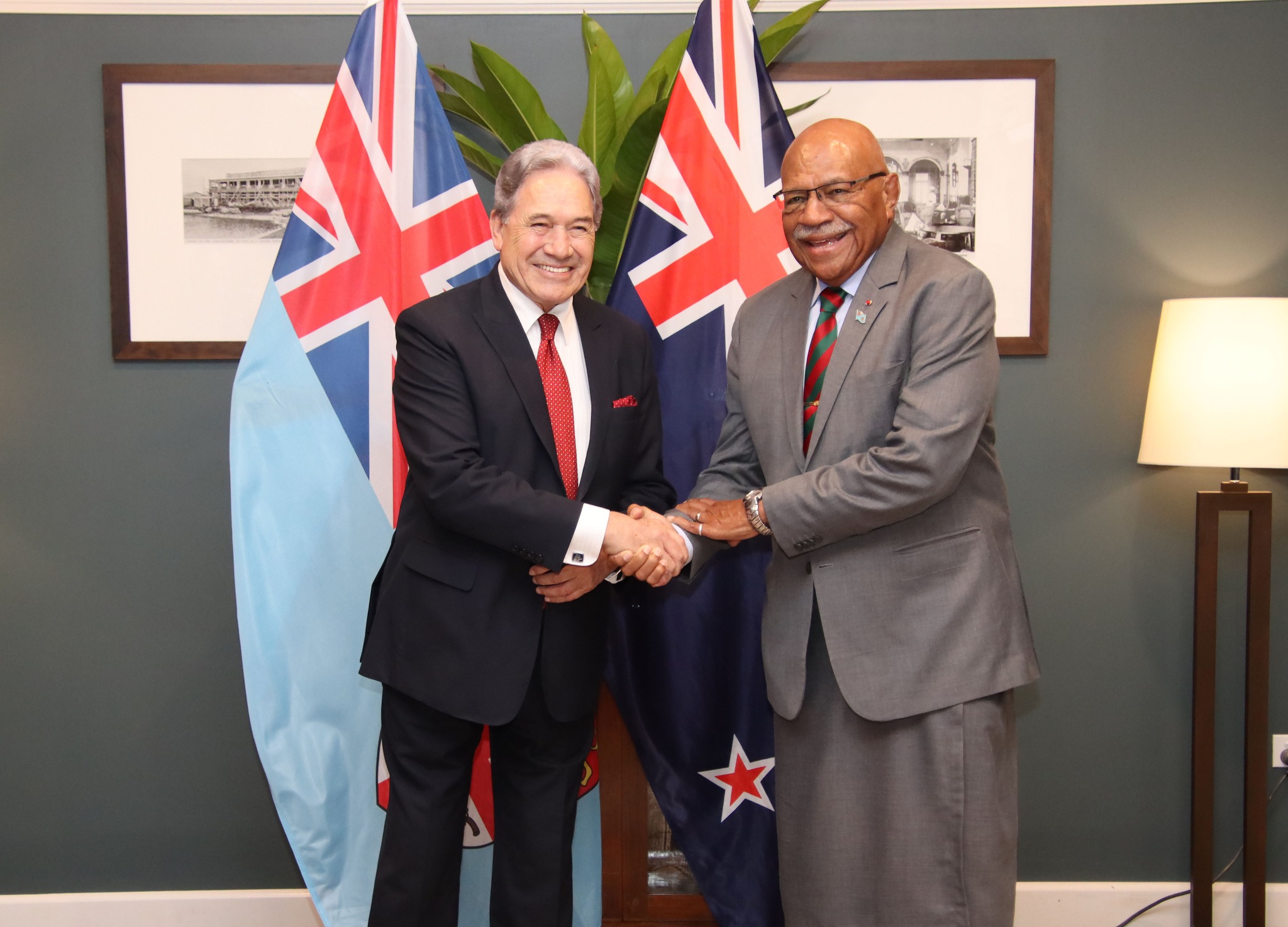New Zealand Foreign Affairs Minister Winston Peters says the government wants to resume and renew the Pacific reset strategy “with greater intensity”.
The deputy prime minister has been meeting with the leaders of Fiji and Tuvalu in Suva, as well as the secretary general of the Pacific Islands Forum (PIF).
Peters told Morning Report the new coalition government wanted to re-engage with the region as fast as possible.
The government would be renewing the Pacific reset strategy – set out in 2018, he said.
“Well, we’re in the blue continent, so to speak. It’s about one quarter of the world’s surface. The population is not great, but it’s very, very critical right across the blue continent, the Pacific Islands -Micronesia, Melanesia – are all on the same wavelength as to the issues of security and future prosperity of the region.
“New Zealand is a critical country in ensuring a better and longer-term resilient engagement with the Pacific countries, and that’s what we want to do.”
Touching on China’s presence in the region, Peters said it was important that any country engaging with the Pacific respected and understood their core values of governance.
“The reality is we have engaged in some projects with China. We’ll be talking with them very, very shortly about long-term engagement.
“But as we have said in the past, the Pacific is an area of peace and tranquillity, but the rule of law has got to be upheld and we seek to work with countries who understand that.”
Speaking about his relationship with the Pacific leaders, he said he had done his best to treat all countries equally, regardless of their size.
“If we do that, we’re going to be far more successful in our engagement, because there will be no sense of resentment that somehow we’re talking down to them.
“There have been times in the past where we have talked down to them regrettably, but that’s not been a mistake that I have made, and I think that [treating them equally] is counting and helping in our re-engagement.”
Peters said he hoped the Pacific Islands Forum would prioritise solutions for the region.
“Sometimes things have dragged on for far too long, and I suppose it’s because of dialogue across a wide number of countries but the forum itself, and it’s not a criticism, it’s really a statement of future intent, we need to engage on the issues, find solutions as fast as we can and put them in place.
“As I say, there are too many of them for the forum not to get a sense of renewed purpose now and make the actions far more meaningful.
“These are not comfortable days; these are days of crisis and we’ve got to step up and ensure that we understand that.”
The Pacific islands, particularly low-lying ones, were facing the issue of climate change whilst having a lack of resources to build resilience, he said.
“In the meantime, just like us, they’re in a transition. If you go to Fiji and all those countries, they’ve got to have vehicles, those vehicles are financed with fossil fuels and there’s no immediate short-term change.
“But the sooner we can get together a long-term permanent solution, the better.
“And then of course, there’s the questions of the cost of living, just like we have, and transportation costs have all gone up.
“So, it’s a matter of ensuring that around the world with countries who have got aid programme, maybe that we together, working together, can do far more with our money and make it go a whole lot further in the region, said Peters.
SOURCE: RNZ PACIFIC/PACNEWS














